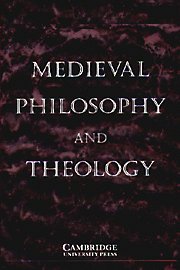Article contents
Suárez and the Problem of External Sensation
Published online by Cambridge University Press: 19 March 2003
Extract
To best understand the key problem facing any Aristotelian theory of sensation, one would be wise to turn to the words of Jonathan Lear: The task is to show how some part of the world—ourselves and other animals—can become conscious of the rest of the world. The danger is that we make the account of the transition from world to mind either too material or too spiritual. If, on the one hand, we give a purely material account of, say, the physical change that a certain visual scene (a tree) forms in the eye of the perceiver, we seem to leave consciousness out of the account. It remains unclear how, by such a physical change, one is meant to get out of the nonconscious physical world. On the other hand, if we give a totally spiritual account, it is not clear that we have given an account of a transition, for it is not clear that we have begun in a thoroughly nonconscious world.Jonathan Lear, Aristotle: The Desire to Understand (Cambridge: Cambridge University Press, 1988), p. 108.
- Type
- Research Article
- Information
- Copyright
- © 2003 Cambridge University Press
- 7
- Cited by




